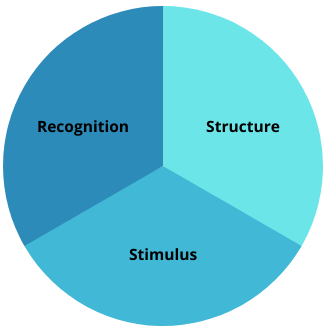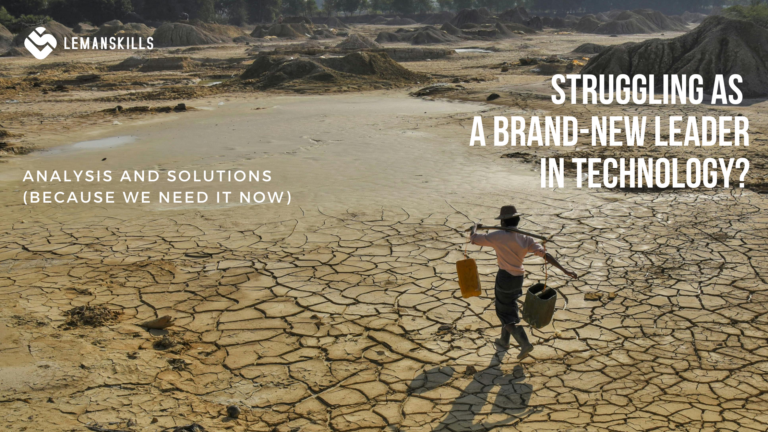We all know physical hunger. Because it is one of the basic human needs, when we are hungry, we can’t think straight, we are less efficient, we can’t focus on what other people say to us. It’s natural from evolutionary point of view, since what all our ancestors needed centuries ago was to survive and get food – to feed that kind of hungers.
But we can also be psychologically hungry. It’s different type of hunger, sometimes we don’t even realize it until we name it, because it sits somewhere deep in our brain and body, whispering to our inner selves from time to time.
Continuing our path on Transactional Analysis’ tools and parts of the framework, today I would like to introduce to you a concept of Eric Berne’s Hungers that all of us have. We are going to answer the question what these hungers are, how to feed them and what happens to us when we are “hungry”.
Let’s go and find out what it is all about.
What are Eric Berne’s Hungers?
Eric Berne, as a father of Transactional Analysis, thought about three hungers that all people have, regardless of their background, age, color of skin, country they live or company they work for at the moment: Recognition, Structure and Stimulus.

Recognition Hunger. As human beings we need to be seen and acknowledge as important parts of the ecosystem we live and work in. It builds our sense of identity as we know that our existence matters and gives value to other people. A mindful “Thank you” can be the easiest way to show somebody that she/he is noticed.
Structure Hunger. We all know that we have a certain amount of time to live our lives and we want it to be meaningful. We find comfort in the regularity of the events, of celebration days from birthdays to New Year’s. We worry about wasting time and worry about not having enough time. We plan and want to know what is going to happen, and when. We also want to have space in which we can be relaxed and less ordered, though we often still want to organize this space.
Stimulus Hunger. Stimulation can be physical or intellectual, it really depends on our needs and the way our individual nervous system is built, hence how we should or want to be stimulated. Stimulus Hunger is about having something new, experiencing and feeling a thing that affects us, and it really can be anything. Starting from a new task, job, hobby or habit, going through an interesting book or workshop, to inspiring conversation with another person.
What is really important that all those 3 hungers always make 100%. It depends on a person how strong a certain need is, based on individual preferences. One person can have a ratio 30%-30%-40% (recognition-structure-stimulus), another 10%-60%-30% (recognition-structure-stimulus) and that’s perfectly fine. There is no questionnaire to measure it (maybe it should be one though), we need to estimate for ourselves how this ratio looks like for us. It is a first step to build self-awareness and doing something to improve our live.
What’s happening when we are “hungry”?
There is a term connected to this topic named “frustrated hungers” (it starts to look like those hungers are actual human beings). Frustrated hungers are when we know that we have a strong hunger for structure (for instance), and we work in a company when there is a huge mess. Or when we have a strong hunger for stimulus, and we live with a person who wants to go on vacation to the same place every single year.
When we are “hungry” we cannot focus, we miss opportunities that live gives us, we cannot concentrate on a single thing. We are less efficient, less innovative, sometimes we don’t have an energy to get up from bed, because “WHAT’S THE POINT? My life suck anyways, so I don’t need to bother cleaning my teeth”. We can get depressed, push people away, we don’t work well. Or we can get angry, mad on the world that is around us or certain people who (in our opinion) are responsible for the current situation.
Both ways, it’s not healthy (physically or psychologically), it has a huge negative impact on our general well-being and on how we use our potential. With frustrated hungers our potential is blocked, asleep somewhere under all those emotions and thoughts. We waste time that we can spend on something meaningful, creative or what gives value to other people.
What can we do to “feed the hungers”?
First thing that we need to do is to define what is the source of our frustration. Which of those hungers we need to feed? Can we do it at work or at home? Or somewhere else?
The next thing is answering the question: “Who can support me in this?”. Can I do anything on my own to improve the situation? If not, who is around and have an influence on the current state of things?
What can we do together to decrease the frustration?
If it’s recognition area, maybe I can get more feedback from my manager or people in my team? Maybe I don’t have enough “thank you” for my hard work? I can tell my manager about it, let’s see what we can do together to change that.
If it’s structure area, maybe I struggle with getting organized? What can I do to structure my day better? Do I schedule “deep work” time to cover the most important things without interruption? Maybe the processes in my organization don’t work very well – do I have any influence on that? Whom can I talk to for providing some ideas to change it?
If it’s a stimulus area, maybe I have monotonous days, every single one is 90% the same as the one before. What can I do to change it? Maybe I can take some new responsibilities at work, a work with new people in a different context? Maybe I can start doing new sport, reading something completely new or listening to the other music than usually?
You can take a look on what works for you, it can be really small, but impactful from your perspective. It can be work-related or not, sometimes it’s easier to do it at work, sometimes in area of your personal life. It depends on your choice, environment that you work and live in, priorities, possibilities, areas of influence, current needs or preferences. Choose your poison and improve your life.
The bottom line
From my perspective, the worst thing that we can do with our life is to waste time. I hate wasting time and being frustrated is one of the main ways to do it. It has a really bad influence on our mind and body, so I’m giving you this tool to use on a daily basis and improve the current situation of yours. You can try it out professionally or personally, it’s a really universal thing. The idea is to simplify your life, to get you out of this state where you are frustrated, limited, trapped sometimes. It’ll give you freedom and perspective to be a better person. I think it’s worth a try.




